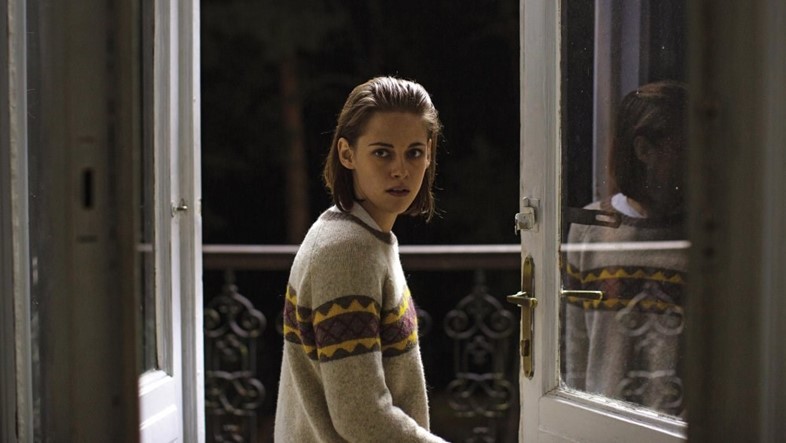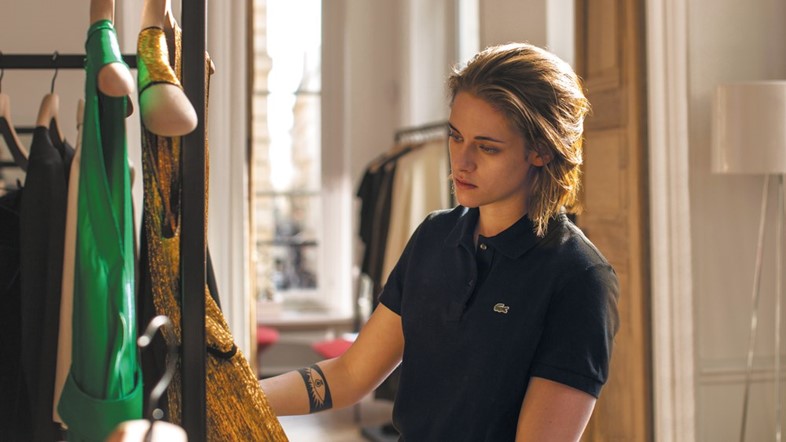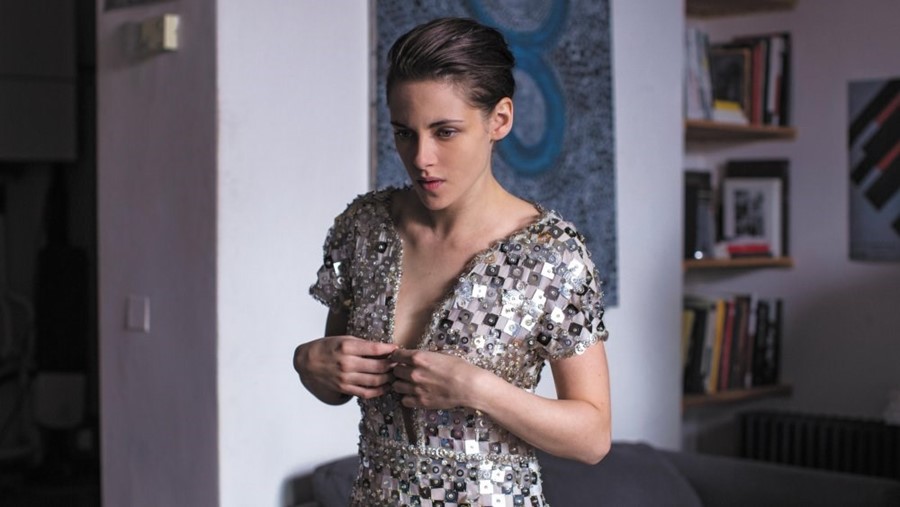The award-winning director muses about his new arthouse thriller, which stars Kristen Stewart as a personal shopper who moonlights as a medium
As the title character in Personal Shopper, Kristen Stewart zips around Paris and London picking up designer outfits and Cartier bling for a fashion-world celeb. The despotic whims of her boss are a royal pain in the ass, but the luxury items she’s forbidden to try on give her a guilty, sensual thrill. Far from being a breezy lampoon of industry narcissism à la The Devil Wears Prada, the film takes a deliciously creepier turn. Maureen resents her day job as a distraction from her real obsession: communing with spirits. She moonlights as a medium, and is nervously waiting for a sign from her dead twin. With its odd blend of ghost-tale eeriness and arthouse introspection, the film – which won Olivier Assayas a Best Director award at Cannes – leaves us mulling larger existential questions long after our goosebumps have died down. The prolific French auteur has often shown flair for experimenting with genre and multiple planes of existence in a career that includes cult 1990s vampire film-within-a-film satire Irma Vep, and another recent lauded collaboration with Stewart, Clouds of Sils Maria. We sat down with him at Filmfest Hamburg in Germany to talk spiritualists and the tyranny of earning a living.
On outer vs. inner lives...
“I was inspired to create a character who was torn between a day job she doesn’t exactly relate to but has to do to pay the rent, and who at the same time is aspiring to higher things. That’s something that happens within all of us: we do some mundane everyday jobs, and then in our thoughts we deal with ideas, abstractions, hopes, and art; with things which are bigger than us. There’s a tension, and the more that we live in a society that’s materialistic, the more the tension becomes brutal and violent. That’s the core of our relationship to the modern world. We criticise it; we understand how alienating and brutal it can be. But at the same time we’re part of it and are attracted to it, and know that at the core of it is a certain freedom for individuals. I was interested in this ambiguity and the fact that Maureen is questioning her own identity. She lost her other half and she has to reconstruct herself. Her relationship with the fashion industry disturbs her, and she questions her own relationship with the clothes she’s buying for her boss.”
On working with Kristen Stewart...
“She has a very feminine and a very masculine side, both dimensions. Somehow you feel that what she does in movies is part of her own quest. The character of Maureen was not exactly inspired by Kristen but I feel that if I had not had the experience of working with her on a previous film I would not have written this one. I was not sure if she would do it – if she’d be available, or interested. I thought that she might think it was too weird and not be comfortable with it, but it was exactly the opposite that happened, she read it and immediately told me that she wanted to do it. Whatever the character is in the end it’s not what I’ve written, it’s what she’s reinvented, the way she transformed and appropriated it. I gave her that space and encouraged her but she’s really one who has channelled whatever this film is about.”

On seances and the afterlife...
“We have a rational self that says that person is dead and gone and won’t come back, and we better get used to it because it’s a fact. But at the same time we keep on having a dialogue with that person and wait for signs, and they come back in our dreams. It’s disturbing because there’s a voice within us that says it’s real, but ultimately it’s only within ourselves. Still, we have doubts. The quest of Maureen reflects our own ambivalence toward these emotions. But our imaginations are real, and what scares us is as real as anything in this room and possibly more real, for us, because we interact with it in a much more intense way. What we used as a reference in representing this was spiritualist photography – the images that were created by mediums at the end of the 19th century – and transcripts of seances. Possibly these mediums saw nothing but they certainly did at least imagine this, and there was a consensus on what exactly appears when you invoke a spirit. We spoke with this very nice middle-aged Brazilian lady who is the leading spiritualist in France, and she said they meet to have seances in this house in the suburbs of Paris and prepare cookies and tea, and it’s very natural. I wanted to portray in the film a world where it’s not such a big issue whether ghosts exist, but whether we connect with them, and whether they are benevolent or malevolent.”
On making thrillers with an arthouse sensibility...
“At the core of art you have things that are complex, mysterious, that you pretend you control but you don’t really, that just come to you in mysterious ways and you hold onto for reasons you’re not sure of. My film is more like a painting where I use genre as just one of the colours. I use it when I need it, when I feel it conveys something that would not come across as strongly without using that genre element, or would be too complex or abstract to express if I was using dialogue. I love genre films because you interact physically with them and they create a physical bond with the audience. It was important to me that you are physically connected to the character of Maureen.”

On getting booed...
“You don’t make movies to be divisive. You hope everyone will like them of course, but then you don’t make movies to create consensus either. You make the movie you feel like and when you get into areas like the supernatural and the relationship with the invisible, people have very strong ideas about that. So either they connect with whatever you’re saying or they don’t because they have their own feelings and convictions in terms of politics or religion or whatever. I’m convinced that movies are about questions and not about answers, so whenever a movie creates any kind of debate I think it’s good, and what movies are for. In terms of cinema, I’ve always been interested in trying things and experimenting. If it’s already been done that way before it’s boring, it’s old before you even start. I like taking risks. Personal Shopper blurs the divide between the real and imagined in our perception. I show a ghost, but is is it really there – that’s completely open for anyone to interpret. It’s not an area where you can give any clear answers.”
Personal Shopper is screening at the BFI London Film Festival on October 13, 2016. It hits cinemas nationwide from Spring 2017.
